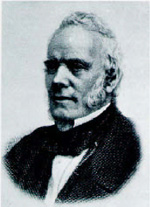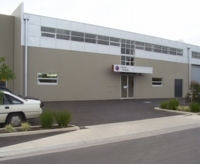You
are receiving this because your address is subscribed at: www.jaunay.com/newsletter.html |
|
 |
| No: 47 |
January 2010
|
|
News January Seminars There are no seminars in January. February Seminars 7: Tracing your English ancestors from afar West Torrens Public Library 1:30 to 3:00pm 21: Coming to grips with FamilySearch WEA Centre Adelaide 10:00am to 1:00pm See the seminar program for more details. Email feedback I was very interested in your newsletter with the information about wills. I had run into the problem of accessing the succession files too. At that time I had the record of the will but not the actual will so I had to get a copy of it first to find out whether my mother or her mother was a beneficiary to the will. I knew my mother couldn't be as she was born 1929 and her grandfather died in 1921. My mother's siblings were mentioned in the will but not my Grandmother but they still wouldn't let me see the Succession Duty files although nearly every person listed in the will were already dead including the children of the beneficiaries. At the time I wanted to prove or disprove a family tale. I was able to access the Death Duty and succession files for a granduncle and it proved invaluable even containing a copy of the birth certificate of one of the sons in Victoria. National Archives Adelaide As reported in the last issue the Director of the National Archives [NAA] has announced that the Adelaide Office (along with Hobart and Darwin) would close. Adelaide is likely to close towards the end of this year to enable the property to be prepared to hand back to the owners. A petition is being circulated and I urge you to download a copy, sign it and circulate it for additional signatures but make sure it is delivered before the 22 January. More email feedback: Thank you for passing on the petition against National Archives closure in Adelaide, Darwin and Hobart. It came at an opportune time as I am on the Committee of the Clan MacLeod Society of Australia (South Australia) Inc. and as we were involved in the Celtica Festival at Port Adelaide over the weekend I suggested we display the petition. We collected 409 signatures from people who were genuinely shocked and frustrated and were very eager to voice their dismay at the proposition of the loss of such an important asset to South Australia, Tasmania and the Northern Territory. NAA Adelaide Saturday Opening National Archives [NAA] Adelaide Reading Room dates for Saturdays in 2010 are: 30 Jan; 27 Mar; 29 May; 24 Jul. 25 Sep; 27 Nov Records have to be preordered prior to day. |
In
this issue: |
|
Adelaide
Proformat Services
• Research |
South
Australian Germanic ancestors This
article is dedicated to the Late Dulcie Love whose contribution to
this subject was significant. This
article is dedicated to the Late Dulcie Love whose contribution to
this subject was significant.Germanic people, predominantly Lutheran, were the most significant group of European settlers to South Australia in the nineteenth century. They started arriving as early as 1837 so that by the mid-1860s about 10% of the population was of Germanic origin, out numbering Scottish immigrants. The SA Genealogy & Heraldry Society has a Germanic Interest Group that has met regularly since 1984 under the leadership of Dulcie Love for much of that time, and is a help group for individuals trying to resolve their Germanic roots and research. The Dulcie Love Collection at the SA Genealogy & Heraldry Society [pictured] contains much information that may assist the researcher. Essentially the collection is maintained in a series of folders mainly located on the southern wall of the library at 201 Unley Road, Unley. Access to the collection is free to members of the Society and reciprocal access arrangements are available to other capital city family history societies members. Visitors will have to pay an access fee. The collection is in colour coded folders. The blue set is not located on the southern wall but within the General Shipping Section of the library at SAGHS and contains information about ships including passengers from German ports into South Australia 1836–1886. Germanic people arrived in South Australia in a number of significant waves: • 1838–1841 Lutherans fleeing religious persecution. • political refugees as result of unrest in Berlin region • Wends or Sorbs avoiding racism • Catholic German settlement founded at Seven Hill sponsored by the Jesuits. • 1848–1854 German miners seeking to better themselves. It is quite wrong to assume that all German immigrants were fleeing religious persecution. In the period 1838–1841 it is estimated that only about 5% of German immigrants were refugees because of religion. Pastor Kavel and his congregation came from the parish of Klemzig near Silesia in East Prussia and they represent the Germans fleeing persecution. They were opposed to the attempts by Kaiser Friedrich Wilhelm III to bring about a union of the Reformed and Lutheran congregation. In 1830 he proposed that both traditions adopt a new Agenda or Worship book as a compromise. Only a small, albeit determined, group of Lutherans rejected the Union and the Agenda objecting  to
the interpretation of the doctrine of Holy Communion. There was some
harassment of old Lutheran congregation and pastors. Their baptisms,
weddings and confirmations were declared illegal and congregations
were fined. It should be pointed out that technically the persecution
ended when the laws were revoked in 1834 but many Old Lutherans feared
future harassment by the civil service and resolved to emigrate. Kavel,
with the financial help of George Fife Angas, brought the congregation
to South Australia and settled them at Klemzig near Adelaide. Angas
made money on the venture when his investment was returned in land
sales. to
the interpretation of the doctrine of Holy Communion. There was some
harassment of old Lutheran congregation and pastors. Their baptisms,
weddings and confirmations were declared illegal and congregations
were fined. It should be pointed out that technically the persecution
ended when the laws were revoked in 1834 but many Old Lutherans feared
future harassment by the civil service and resolved to emigrate. Kavel,
with the financial help of George Fife Angas, brought the congregation
to South Australia and settled them at Klemzig near Adelaide. Angas
made money on the venture when his investment was returned in land
sales.Pictured: George Fife Angas In December 1838 Captain Hahn of the Zebra arrived with a large number of Lutheran migrants from Prussia who settled on land belonging to Frederick Dutton that they named Hahndorf. One of the last ships to arrive with religious refugees was the Skjold in October 1841. The death of Friedrich Wilhelm III in June 1840 meant that effectively religious reasons to settle in South Australia changed to economic reasons and the vast majority of Germans emigrated for a better life. During the early 1850s more than two thousand German miners migrated with interest free loans supplied by the Government of Hanover from the Harz Mountains where mining had become costly, outdated and had to compete with very low prices. Many of these men found work in South Australia’s copper mines and smelters. Some of these families were attracted by the Victorian goldfields while others moved to the Wimmera district in the 1870s. Unfortunately no official passenger lists are available for very early German emigration simply because they were business arrangements outside the sphere of government and departure lists from German ports have not survived. Attempts are being made to rectify this and the most significant work done in this field on the local level are the Blue Folder reconstituted passenger lists compiled from a range of other sources. After 1850 copies of passenger lists held by the Hamburg Archives records are available at the SA State Library and State Records of SA as Source 1531. Emigrants from Hamburg to Australia compiled by Eric and Rosemary Kopittke is a series of booklets of compiled passenger lists, mainly from newspapers dating from 1850 and is a respected resource and should be used in conjunction with the Blue Folders which are the result of significant research. A series of Red Folders in the collection called People is a compilation of clippings, extracts, and research notes on Germanic people in SA arranged alphabetically by surname. Green Folders focuses on places settled by Germanic people and includes clippings. maps, photographs and the names of residents amongst other material. There are other folders—Black: Research guidelines, Grey: History and Yellow: Culture and customs. The material is supplemented by a card index of Germanic Settlers and an attempt has been made to collate full names, birth, marriage, death, funeral dates and places, parents' names, spouse name, and arrival details. The cards are cross referenced to spouses. SAGHS is also the official public repository for Catholic Parish Registers and therefore those with Catholic Germanic ancestry will likely find it necessary to access the church records held in the collection on fiche. This is because prior to 1875 Catholics were likely not to register births, but certainly sought baptism. The earliest Germanic Catholics were centred on Sevenhills and the Catholic Church records for this parish start in 1849. People quickly moved away from the area and so other parish records may need to be perused. Early Catholic Churches and the starting dates for their baptism records are: Adelaide circuit: Clare, Gawler Mount Barker, Willunga, South East 1839 to 1853 Adelaide (St Patrick) 1854 Gawler 1849 Kapunda 1849 Marrabel–Tarlee 1869 Mintaro 1866 Morphett Vale–Marion 1848 Mount Barker circuit: Mt Barker, Macclesfield, Birdwood, Kanmantoo, Nairne, Strathalbyn, Stirling 1848 Mount Gambier–Penola 1854 North Adelaide circuit: Bowden, Brompton, Dry Creek, North Adelaide, Prospect Norwood 1869 Penola 1854 Port Lincoln 1866 Riverton–Marrabel–Upper Murray 1869 Salisbury–Virginia 1869 Sevenhill 1849 Tarlee–Gilbert Valley 1869 Williunga circuit: Normanville, Rapid Bay, Willunga, Yankalilla  The other significant collection of Germanic material is held by the Lutheran Archives [pictured] at 27 Fourth Street, Bowden. The Lutheran Archives is the official repository of historical material relating to the Lutheran Church of Australia (LCA). It holds records of the present LCA, as well as records of the earlier Lutheran Synods in Australia which in time amalgamated to form the present LCA. The collection lacks a comprehensive catalogue and users will usually need to consult with the archivist to locate the relevant records. The main interest for family history will be the parish registers although the collection extends beyond this material. A finding aid known as the Church Records Computer Database Index has been prepared which allows the researcher to quickly locate those records which may be useful. The church records available cover the following synods: Kavel-Fritzsche Synod (1838–1846) Langmeil-Light Pass Synod (1846–1874) Bethany-Lobethal Synod (1846–1863) Victoria Synod (1856–1921) Tanunda-Light Pass Synod (1860–1874) Evangelical Lutheran Synod of Australia (ELSA) (1863–1944) Immanuel Synod (1874-1921) General Synod (1876–1921) Immanuel Synod (1884–1921) Evangelical Lutheran Synod of Queensland (ELSQ) (1885–1921) United German & Scandinavian Lutheran Synod of Queensland (1885–1921) Evangelical Lutheran Church of Australia (1904–1926) United Evangelical Lutheran Church of Australia (UELCA) (1921–1966) Evangelical Lutheran Church of Australia (ELCA) (1944–1966) Lutheran Church of Australia (LCA) (1966 onwards) . |
|
| To
unsubscribe send a blank email via the following link using the same
address you subscribed to: newsletter-leave@jaunay.com |